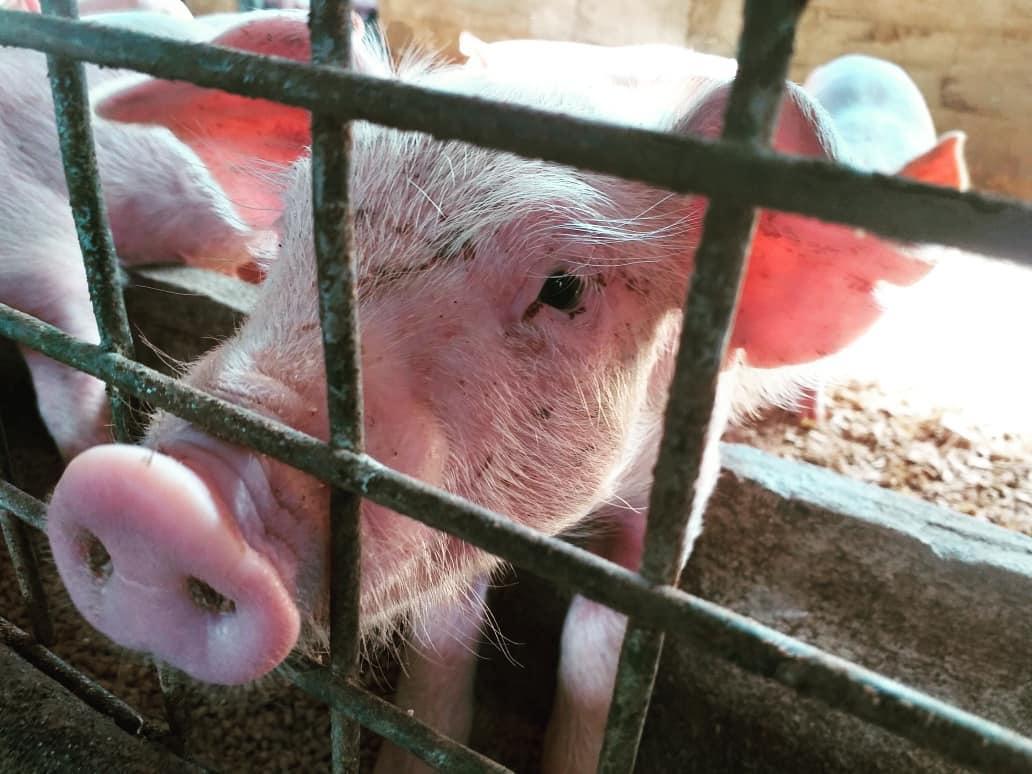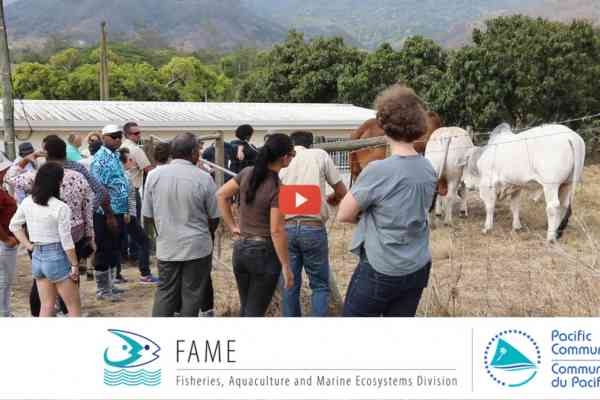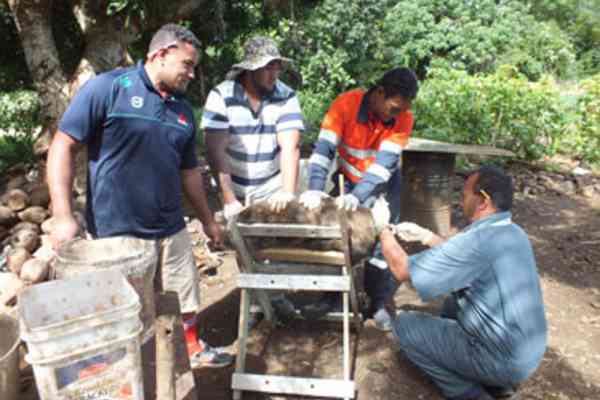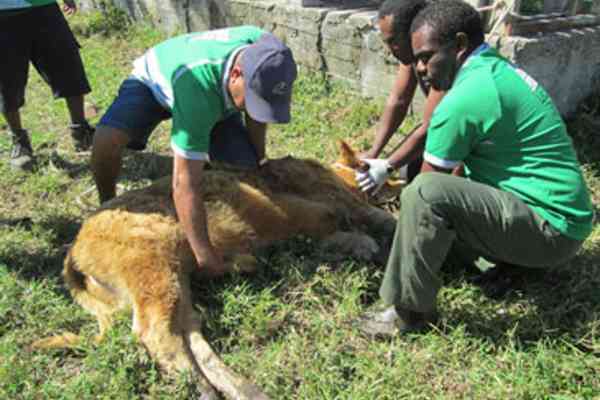31 March 2020
Papua New Guinea recently announced that its multi-million pork industry is now under threat after African Swine Fever (ASF) was discovered in Mendi, in the Southern Highlands Province. It is believed that the disease was transported through carriers and possibly imported canned food. The virus was suspected when a large number of pigs in Mendi, 336, died in February. Samples were taken by an investigation team from NAQIA (National Agriculture and Quarantine Inspection Authority) and sent to Australia with results returning positive.
In response to this threat, the Pacific Community (SPC) has been working closely with leaders in the region to tighten biosecurity borders and undertake measures within the Pacific Island Countries and Territories (PICTs) to avoid widespread ASF contamination.
ASF is a highly contagious viral disease of domestic and wild pigs that can cause serious economic and production loss and poses a big threat to the pork industry in the Pacific. Pigs are the most important domestic animals in the Pacific culture. Pork is a main principal meat for most PICTs therefore impacting the diets of many vulnerable people. ASF would lead to loss of income in the affected region which are engaged in pig farming. This will limit the sale of live pigs and pork production.
ASF does not directly affect humans, however, the virus is spread by direct contact between pigs which are infected, body fluids / tissues and indirectly from contact with contaminated objects such as vehicles, equipment, footwear or clothing and through feeding with garbage containing infected meat. Some species of ticks (vector) can transmit the virus. There is no effective vaccine available or effective treatment against ASF.
Some Pacific islands have already undertaken preventative measures as a result of risk assessments on the potential impact of ASF. The Samoa Ministry of Agriculture for example has banned the importation of all pork products from China as well as all countries with confirmed presence of ASF and the immediate suspension based on biosecurity measures, that also includes the recall of all pork products currently in stores across Samoa.
The disease is already a serious threat to farms in nearby Timor Leste. According to the Food and Agriculture Organisation of the United Nations (FAO), “the Ministry of Agriculture and Fisheries in Timor Leste announced the confirmation of ASF outbreak on 27 September 2019. The disease started on 9 September, a total of 100 outbreaks in smallholder pig farms has been recorded in the Capital City, Dili [reference1, reference2]. Additional ASF outbreaks reported in districts of Baucau, Covalima, Ermera, Lautein, Liquiça, Maliana, Mantutu, Manufahi, and Viqueque. A total of 1,600 pig have died as ASF spread to Timor-Leste [reference3, reference4, reference5].”
This shows the importance of Biosecurity and the constant need for stringent import risk assessments (IRA’s) on the importation of live animals as well as meat products. Also scientifically justified biosecurity interventions at pre-border, border and post-border to address and stop AFS as well as other exotic and zoonotic animal diseases from entering and spreading in our region. As we all know prevention is better than cure.
Media contacts:
Mr. Gibson Susumu – Sustainable Agriculture Team Leader, [email protected] – (+679 3370733; +679 7614920)
Ms. Elenoa Salele – Animal Health and Production Technician, [email protected] – (+679 3370733; +679 7329647)
Countries and provinces affected by ASF: According to the Food and Agriculture Organisation of the United Nations (FAO)
Hazard: African swine fever (ASF) is a fatal animal disease affecting pigs and wild boars with up to 100% case fatality rate.
China: Anhui, Heilongjiang, Henan, Jilin, Liaoning, Jiangsu, Zhejiang, Shanxi, Yunnan, Hunan and Guizhou, Hubei, Jiangxi, Fujian, Sichuan, Shaanxi, Qinghai, Guangdong, Gansu, Shandong and Hainan Provinces, Tianjin, Chongqing, Shanghai and Beijing Municipalities, Inner Mongolia, Ningxia Hui, Guangxi Zhuang, Xinjiang Uygur and Tibet (Xizang) Autonomous Regions and Hong Kong Special Administrative Region (SAR).
Mongolia: Bulgan, Darkhan-Uul, Dundgovi, Orkhon, Selenge, Töv Provinces and Ulaanbaatar.
Viet Nam: All provinces and municipalities.
Cambodia: Ratanakiri, Tboung Khmum, Svay Rieng, Takeo and Kandal Provinces.
Democratic People’s Republic of Korea: Chagang-Do.
Lao People’s Democratic Republic: All provinces and municipality.
Myanmar: Shan and Kachin States.
The Philippines: Rizal, Bulacan, Pampanga, Pangasinan, Nueva Ecija, Cavite, Benguet, Kalinga, Aurora, Bataan, Quezon, Isabela, Davao Occidental, Davao del Sur, Camarines Sur Provinces and Metro Manila (Caloocan, Malabon and Quezon Cities).
Republic of Korea: Gyeonggi-do, Gangwon-do* and Incheon City (* wild boar only)
Timor-Leste: Dili City, Baucau, Covalima, Ermera, Lautein, Liquiça, Maliana, Manatuto, Manufahi, and Viqueque districts.
Indonesia: North Sumatra and East Nusa Tenggara Provinces.
Papua New Guinea: Mendi, Southern Highlands Province.



